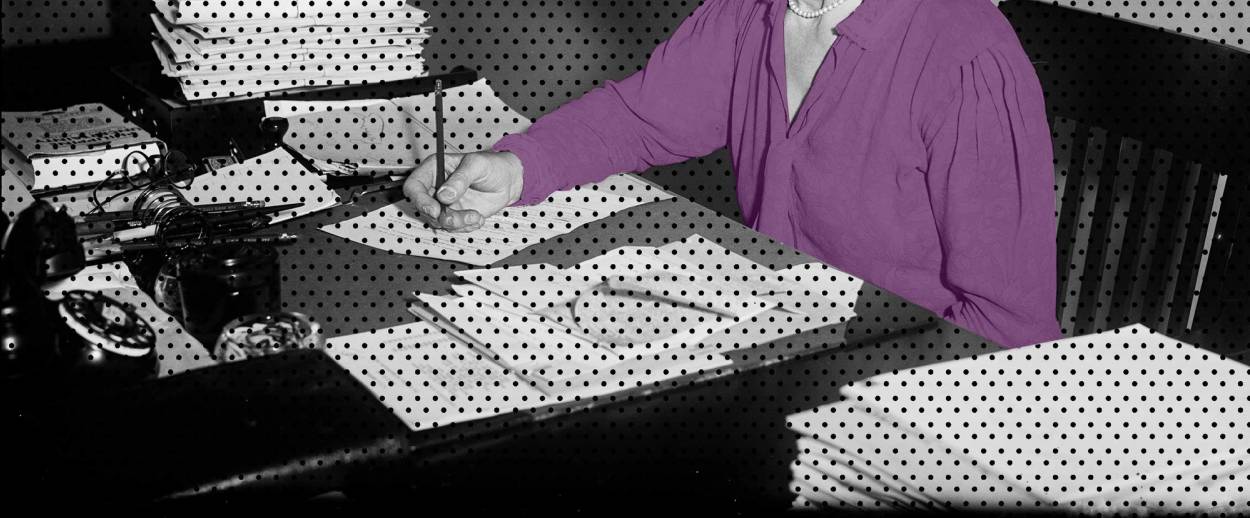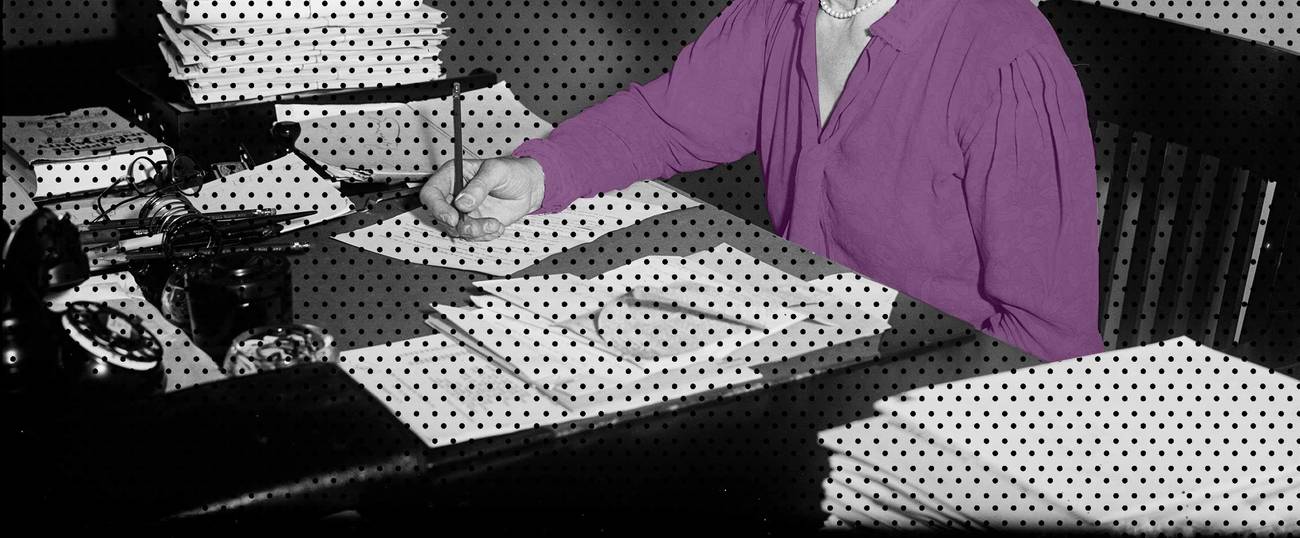Weighing the Costs and Benefits of Opportunities in the New Year
How an economics professor and an 18th-century rabbi helped me make better choices




It’s September 1992, just a few weeks into my college career. Five minutes before my 10:40 a.m. class starts, I walk into Asif Dowla’s Econ 101 lecture. Professor Dowla has been patiently walking us through the basics of economic theory. Today, he explains the concept of “opportunity cost.”
“Opportunity cost,” he says, “is what you lose when you choose one selection out of a set of mutually exclusive alternatives. The cost isn’t just monetary—it could be pleasure or productivity or time. It’s whatever you would have enjoyed if you had picked another of the available choices.”
As the room fills with the scratching of pencils on lined notebook paper, professor Dowla continues: “Imagine that a manager buys an expensive new machine for his factory. The company is out the cost of the machine, which the manager hopes to recoup by improving productivity. But there’s also an opportunity cost; the company loses out on the extra productivity it could have obtained by hiring additional workers with that money, or the additional sales it might have made if the manager had spent the money on marketing.”
I put down my pencil for a minute to ponder what he’s saying. It could be pleasure or productivity or time. In high school, I was a notorious slacker, the type of person who did my French homework the period before it was due, between the steps of my bio lab, and who turned in half my papers late, shrugging it off when my teacher dropped me a grade or two.
I applied early decision to St. Mary’s College of Maryland, and I got in easily based on strong SAT scores and two outstanding essays. But the honors program had turned me down, and I was refused a scholarship I coveted.
Now, in professor Dowla’s class, I suddenly think: What if the price of evening after evening in front of the TV and long Sunday afternoons reading novels was no honors program and having to hit up the government for student loans?
While hanging out in the dorm, I discover that many of my friends have started making similar calculations. The opportunity cost of a visit to The Green Door isn’t just the price of a beer; it’s five fewer pages written of a paper due next week. The opportunity cost of going to Florida for spring break isn’t just the price of gas and a motel, but also the loss of precious time with an elderly grandparent.
Interestingly, it works the other way, too. Choosing to stick it out another couple hours in the computer lab means less fun with friends, and heading home for spring break means no delightful hours stretched out on a beach. And that’s OK, if you really value fun or relaxation more than their opposites.
To make the correct choice, you don’t just pick the better thing, but the thing whose opportunity costs you can tolerate.
It’s September 2017, and I’m a stay-at-home mother and freelance writer. From the moment I drop off the last kid at school until afternoon carpool, I have seven hours to spend on housework, self care, leisure, volunteering, and hopefully some paid work—writing and editing.
Rosh Hashanah is the next week, so I ponder my performance over the previous year. Half a decade into viewing my writing as a serious profession, not a hobby, I realize I haven’t been taking my profession seriously enough. There’s a novel—my first for adults—that I’ve been working on for five years, but which still doesn’t really have an ending. Although a colleague has given me extensive feedback, it’s languishing in a drawer.
Over the previous 12 months, I’ve published fewer stories, fewer essays, fewer everything than last year.
There are days I spend more time following a thread on Facebook than I spend writing. For the first time since I declared myself “a writer,” my income has dropped below what I made the previous year.
“Stop wasting so much time,” tops the list I’m writing of “Things to Improve Upon in the Coming Year” for the third—possibly fourth—year running.
I need a plan.
Walking over to our bookshelf, I extract a copy of Mesillat Yesharim (The Path of the Just) by Italian-born kabbalist and philosopher Rabbi Moshe Chaim Luzzatto (the Ramchal). I open to the chapter on the trait of zerizut—alacrity. If I master zerizut, I’ll really get stuff done.
The Ramchal first quotes the Book of Proverbs (24:30-33): “I passed by the field of an indolent person … and it was overgrown with thorns, its surface was covered with thistles …”
That’s me! I think. My field is covered in thistles!
He soon goes on to explain that the lazy person isn’t bad; rather they choose pleasure and relaxation over work—and it’s this behavior that has allowed evil to creep in: “We see with our own eyes … how a person who is already cognizant of his duty and who already knows what is appropriate for the salvation of his soul and what his obligation is to his Creator, can nonetheless neglect his duty.”
How do they do this? By making excuses.
I know my excuses, I think to myself. “I have to check Twitter one more time.” “Let me do that after I Google this …” “No one is going to want to read my novel—it’ll never sell—so why waste more time on it?” “That article isn’t due yet, anyway.”
I’m busy all the time, but busy with what?
I flashback to Econ 101: To make the correct choice, you don’t just pick the better thing, but the thing whose opportunity costs you can tolerate.
Sure, I can spend the morning finishing the latest book by Brandon Sanderson, but then I will lose several hours of quiet writing time at the time of day I’m most alert. Yeah, I can spend 20 minutes to look up and post links to defend myself against that woman on Facebook who thinks I’m abusing my children by serving them tea and coffee, but then I will run out of time to write that pitch to a magazine editor before carpool.
Even “good”—or morally neutral—choices have costs associated with them. Organizing an event for my synagogue might not be worth the time no longer available for writing, keeping up with the laundry and dishes, and chatting with my husband when he gets home from work.
It’s 2018, and Rosh Hashanah is approaching again. This is the time when many of us make resolutions for the year ahead. We also weight the last year’s successes and failures.
I wish I could say that I have completely erased my habit of time-wasting, but I haven’t. I still space out on Facebook, although it’s become rarer and for shorter lengths of time.
If there is a scale from 1 to 10 for efficiency, I have merely risen from a 3 to a 5. However, this small improvement has already paid off:
I wrote a complete children’s novel during National Novel Writing Month.
I finally composed an ending for that novel that was languishing my drawer—and revised it to the point it’s nearly ready for submission.
I published pieces in several venues I never published in previously, and I increased my load of editing work.
Sometimes I choose personal goals over professional ones, improving my Hebrew and studying more Torah. I reserve most evenings for family activities. At other times, I favor recreation over production. In order to accomplish everything I want to, I seem to need more sleep, and, occasionally, an “off” day, reading novels or visiting a friend.
Will all these efforts will pay off in a financial way? That remains to be seen. G-d ultimately determines whether our efforts are successful.
But I’ve noticed a significant change inside myself. There’s a line in “Eishet Chayil”—“A Woman of Valor,” sung on Friday nights in many Jewish homes—which has become especially meaningful to me: V’lechem atzlut, lo tocheil, “And the bread of indolence, she does not eat.”
When I hear this at the Shabbat table, I sit up straighter, smile bigger. I think: By choosing to use my time more wisely, I’ve earned a little share of valor.
Rebecca Klempner is a wife, mother, and writer in Los Angeles.